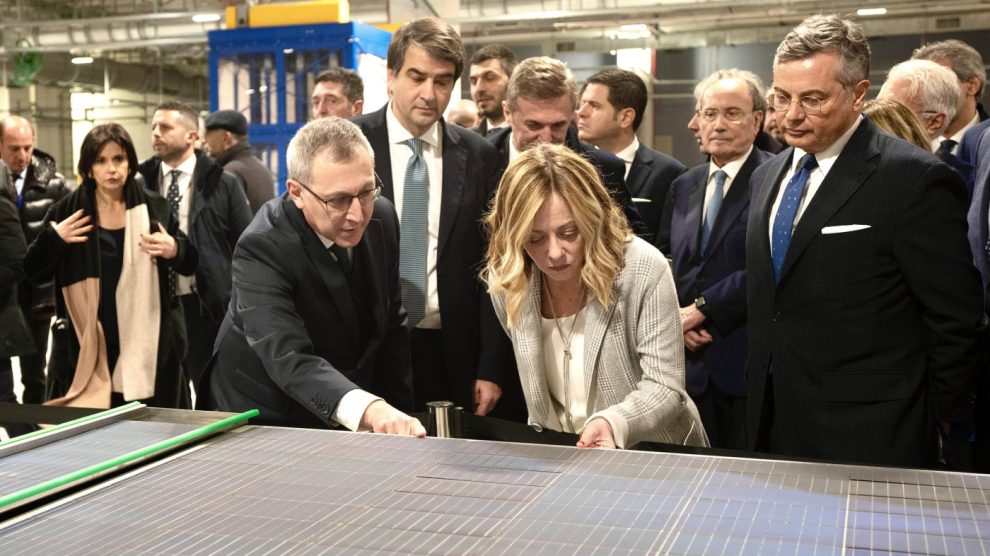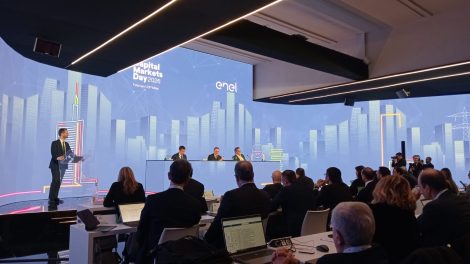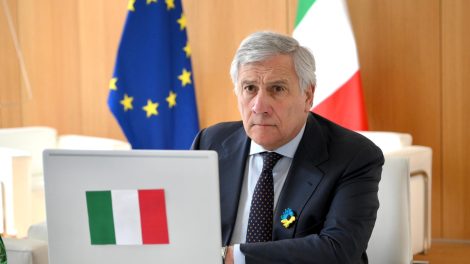Italy’s recipe for European solar power. “Our bet is for Catania to become one of the most important hubs in solar panel production in Europe, and the Italian government wants to do its part,” Prime Minister Giorgia Meloni said on Saturday after visiting the facilities at 3Sun, State-controlled Enel’s innovative photovoltaic panel factory in Sicily. “We want and we need to be competitive in this sector compared to Asian players,” Ms Meloni added.
- 3Sun is slated to reach a production capacity of 3 gigawatts by the end of 2024. Its promising formula – hinged on innovative techniques that make the panels far more efficient than the competition – helped Enel secure €60 million in funding from the European Investment Bank, with support from InvestEU and a consortium of Italian banks.
- Rome had also drawn from the EU-bankrolled National Recovery and Resilience Plan to grant an additional €90 million.
- Rome aims to anticipate market conditions and political developments by ensuring the creation of a European PV productive hub.
A ticking time bomb. Last week, the European solar industry warned that it has only a few weeks left before a raft of companies shut down because of competition from China. A strong political signal is more important than ever, they argued, but the highly anticipated debate in the European Parliament on Monday didn’t result in any concrete commitments.
- Cheaper Chinese solar panels have driven most European manufacturers out of business over the past two decades. Today, producing in China costs 35% less, also thanks to Beijing’s grip on raw materials. It comes as no surprise that around 75% of European solar panels come from China.
- The industry is calling for emergency measures to safeguard the EU supply chain in the face of oversupply from China, as well as more funding, and also curbs on Chinese access to the EU market if need be.
Does it sound familiar? Subsidy pressures and distorted market competition are not just a problem for the solar industry. Europe’s once proud auto industry worries that subsidised electric vehicles from China – and more favourable industry conditions in the United States – may spell doom.
- Automaker giant Stellantis recently denied the rumours of a merger with Renault. The resulting company would have created the EU’s “auto Airbus”, and analysts believe that to drive down costs and be more competitive globally, automakers will have to at least cooperate more with each other.
- As for market access, the EU opened an anti-subsidy investigation into Chinese EV imports in September 2023 to combat the “flood” of cheap vehicles, as Commission President Ursula von der Leyen put it. This may lead to EU tariffs on Chinese EV imports as soon as this year.





